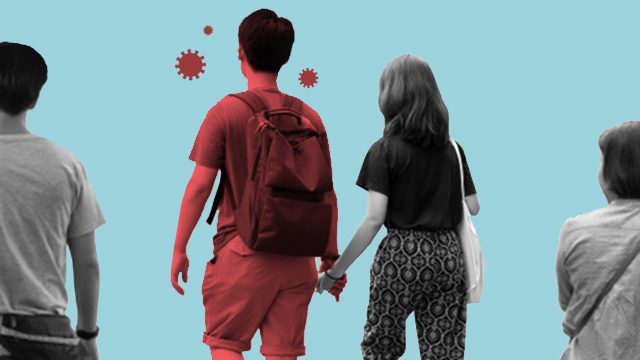SUMMARY
This is AI generated summarization, which may have errors. For context, always refer to the full article.

MANILA, Philippines (UPDATED) – There’s a grain of truth to social media posts that say patients infected with the 2019 novel coronavirus (2019-nCoV) don’t show symptoms – but transmission of the virus from these people is rare. (READ: Novel coronavirus or 2019-nCoV: What we know so far)
There are known cases of 2019-nCoV transmission through infected people who haven’t developed symptoms, the World Health Organization (WHO) said as of Saturday, February 1, but they emphasized that the main driver of transmission is symptomatic cases.
They said in their 12th situation report: “Asymptomatic infection may be rare, and transmission from an asymptomatic person is very rare with other coronaviruses, as we have seen with [the] Middle East Respiratory Syndrome coronavirus. Thus, transmission from asymptomatic cases is likely not a major driver of transmission. Persons who are symptomatic will spread the virus more readily through coughing and sneezing.” (READ: The global spread of the coronavirus: Where is it?)
It’s also possible to have the 2019-nCoV but not show symptoms due to its estimated incubation period. The WHO defines the incubation period as “the time between infection and the onset of clinical symptoms of disease.”
For now, 2019-nCoV has an incubation period of 1 to 12.5 days, but this may change as more data becomes available. It’s possible for the virus to have an incubation period of up to 14 days, based on information from other coronaviruses like the Middle East Respiratory Syndrome and Severe Acute Respiratory Syndrome.
Infected people who do show symptoms of 2019-nCoV will have a runny nose, sore throat, cough, and fever. For some people, the virus also leads to pneumonia or breathing difficulties.
The new coronavirus can also survive on surfaces for hours or up to several days, so it’s best to clean surfaces that may be infected with a simple disinfectant, the WHO advised. Clean your hands afterwards with soap and water or an alcohol-based hand rub and avoid touching your eyes, mouth, and nose.
The US Centers for Disease Control and Prevention recommends cleaning and disinfecting frequently touched surfaces like doorknobs, tables, and light switches for households that have persons under investigation or confirmed 2019-nCoV cases. They emphasized that “cleaning of visibly dirty surfaces followed by disinfection is the best practice measure for prevention of COVID-19 and other viral respiratory illnesses in households and community settings.”
The WHO recommends washing hands frequently and practicing respiratory hygiene to protect oneself against the new coronavirus. They also recommend maintaining at least a 3-foot distance between yourself and people who are coughing, sneezing, and have a fever, as they may project small droplets containing the virus which you could breathe in. Seek medical care early if you have fever, cough, and difficulty breathing in case these are caused by the 2019-nCoV.
As of Thursday, March 12, there have been 49 confirmed cases of 2019-nCoV in the Philippines and 763 patients under investigation. Among the confirmed cases, there have been two deaths.
Globally, also as of March 12, there have been 4,281 deaths and 118,554 cases in 110 countries. The WHO has called the coronavirus outbreak a pandemic. – Rappler.com
Add a comment
How does this make you feel?





There are no comments yet. Add your comment to start the conversation.